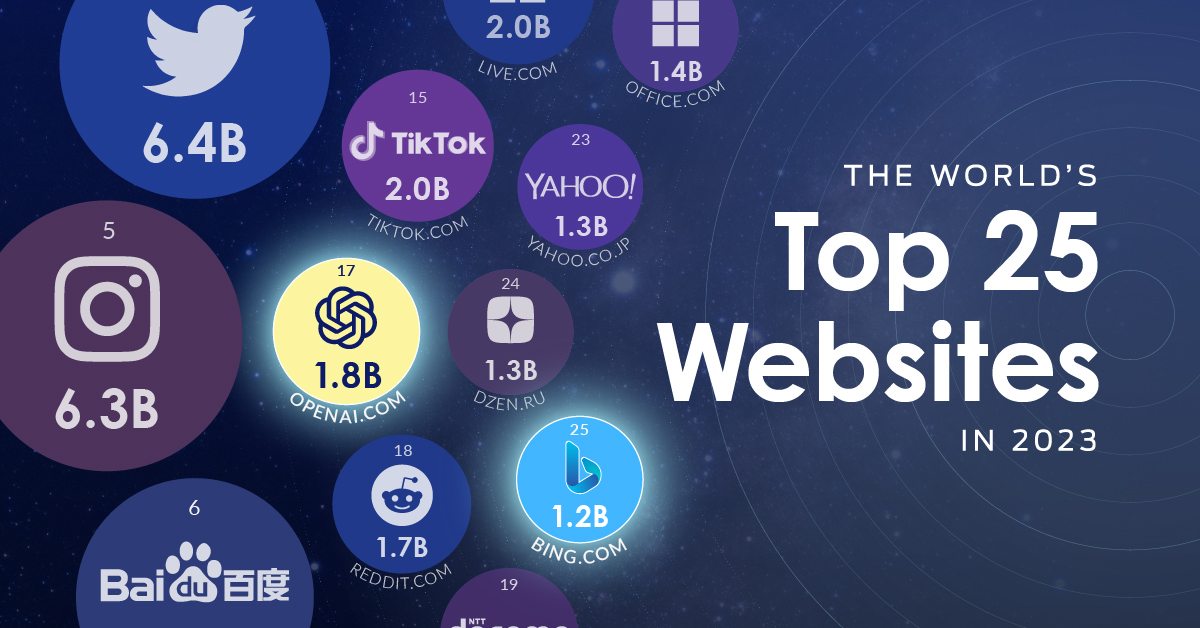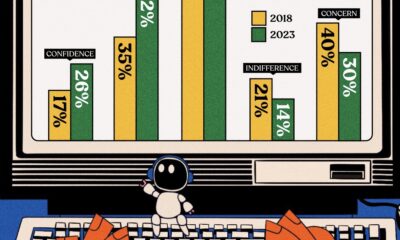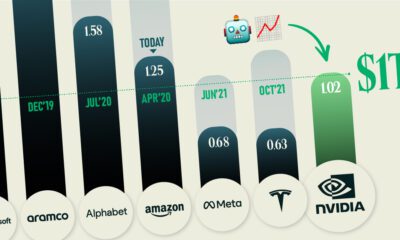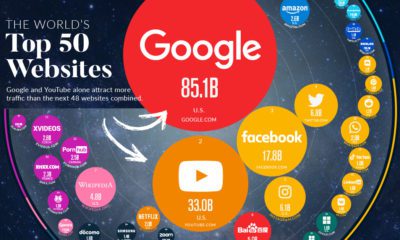Technology
Ranked: The World’s Top 25 Websites in 2023
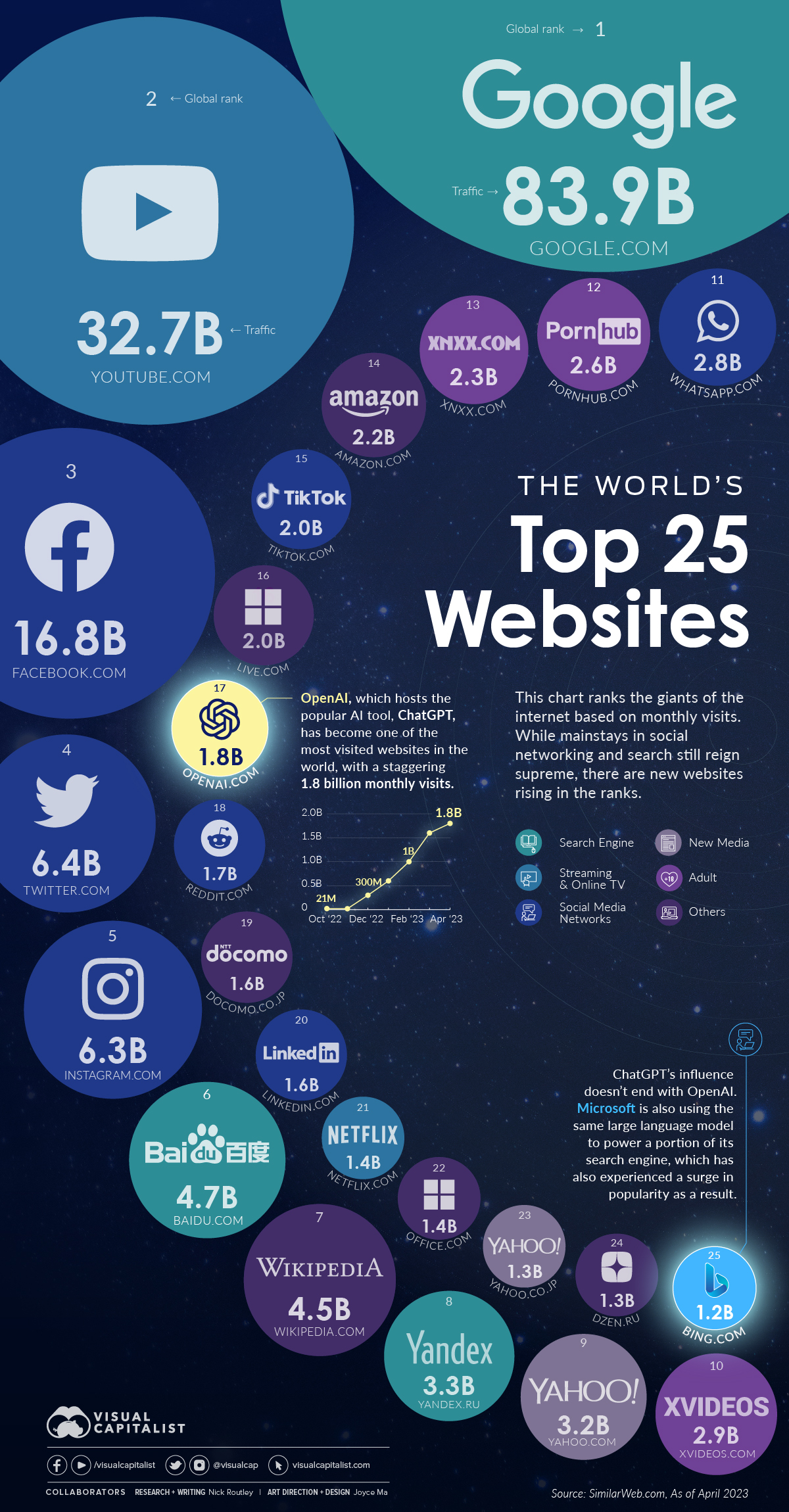
The World’s Top 25 Websites in 2023
In the vast realm of the internet, a handful of websites have emerged as global giants. Mainstays like YouTube and Facebook capture billions of users and shape our online experiences. But occasionally, new waves of innovation can shake up this list, which is exactly what’s happening now with generative AI.
Using data from web analytics firm SimilarWeb, we delve into the top 25 websites based on their most recent traffic numbers.
Ranking Internet Heavyweights
In 2023, web properties owned by Alphabet and Facebook dominate the top 25 list as they have for many years now. In fact, when Google, YouTube, Facebook, Instagram, and WhatsApp are combined, they make up three-quarters of the top 25 list’s total traffic.
Here’s the complete top 25 websites list as of April 2023:
| Rank | Website | Monthly Traffic (billions) | Category |
|---|---|---|---|
| 1 | google.com | 83.9 | Search Engines |
| 2 | youtube.com | 32.7 | Streaming & Online TV |
| 3 | facebook.com | 16.8 | Social Media Networks |
| 4 | twitter.com | 6.4 | Social Media Networks |
| 5 | instagram.com | 6.3 | Social Media Networks |
| 6 | baidu.com | 4.7 | Search Engines |
| 7 | wikipedia.org | 4.5 | Dictionaries and Encyclopedias |
| 8 | yandex.ru | 3.3 | Search Engines |
| 9 | yahoo.com | 3.2 | News & Media Publishers |
| 10 | xvideos.com | 2.9 | Adult |
| 11 | whatsapp.com | 2.8 | Social Media Networks |
| 12 | pornhub.com | 2.6 | Adult |
| 13 | xnxx.com | 2.3 | Adult |
| 14 | amazon.com | 2.2 | Marketplace |
| 15 | tiktok.com | 2.0 | Social Media Networks |
| 16 | live.com | 2.0 | |
| 17 | openai.com | 1.8 | Technology - Other |
| 18 | reddit.com | 1.7 | Social Media Networks |
| 19 | docomo.ne.jp | 1.6 | Telecommunications |
| 20 | linkedin.com | 1.6 | Social Media Networks |
| 21 | netflix.com | 1.4 | Streaming & Online TV |
| 22 | office.com | 1.4 | Prog. and Developer Software |
| 23 | yahoo.co.jp | 1.3 | News & Media Publishers |
| 24 | dzen.ru | 1.3 | Community and Society |
| 25 | bing.com | 1.3 | Search Engines |
The 25 websites above combine for a staggering 192 billion monthly visits.
Most of the websites on this list are based in the U.S., but a few such as Baidu (China) and Yandex (Russia), also make the cut. Interestingly, the three adult websites on this list–XVideos, PornHub, and XNXX–are based outside the U.S.
The Allure of Generative AI
A year ago, Bing ranking as one of the world’s top websites wasn’t on many people’s bingo cards. But, Microsoft’s also-ran search engine has benefitted immensely from the generative AI boom taking place—making it a legitimate contender in the search engine category that has been firmly dominated by Google for years.
Of course, the most remarkable story this year is the meteoric rise of OpenAI, the creator of ChatGPT and other AI-powered tools. OpenAI’s web traffic has shot up over the course of the year, rising from about 20 million per month in the fall of last year to 1.8 billion in April 2023.
In fact, OpenAI’s website traffic is growing so fast, that it may soon surpass giants like TikTok and Amazon.
The rise of OpenAI and ChatGPT shows just how quickly a company can rise to prominence if their tech offering is compelling enough. Whether that popularity can be sustained over the long term remains to be seen.
Technology
How Long it Took for Popular Apps to Reach 100 Million Users
Threads reached 100 million users in just five days. Here is a timeline of how long other popular platforms took to reach the milestone.
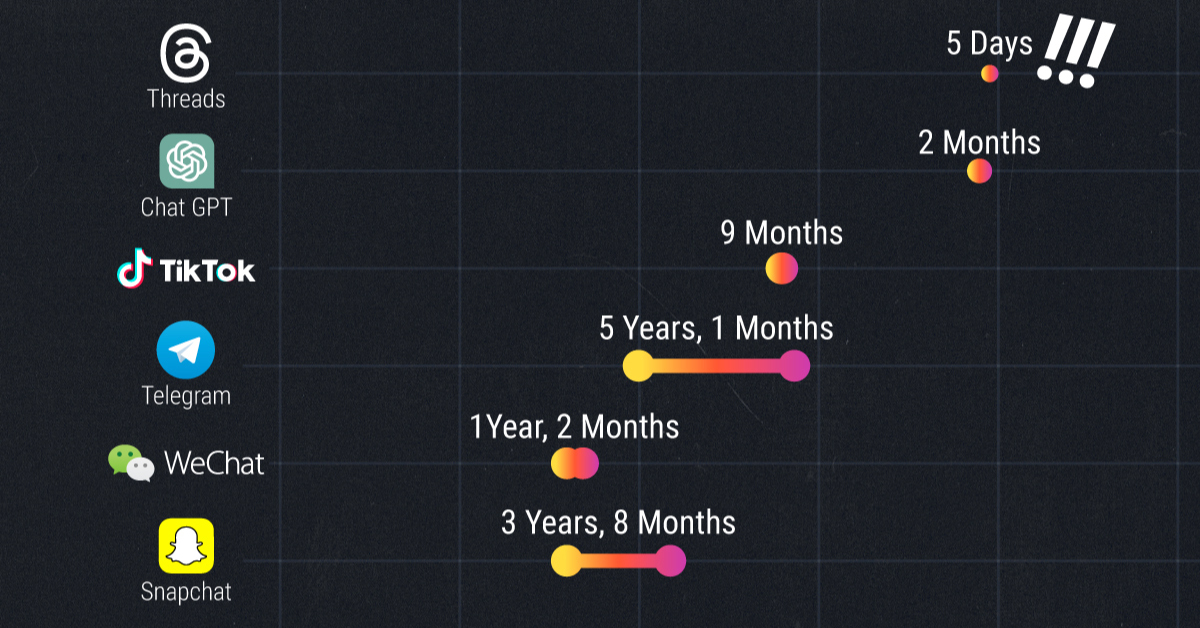
How Long it Took for Popular Apps to Reach 100 Million Users
Of Twitter’s many new rivals, Meta’s newest social media platform Threads has established its presence with a bang.
According to Meta founder Mark Zuckerberg, Threads took only 5 days to reach the key threshold of 100 million users. It achieved this milestone through organic demand—and no paid promotions required—smashing all previous records.
But how long have other popular platforms—TikTok, Instagram, and YouTube to name a few—taken to build their user base? Pulling data from PwC and Yahoo, we rank how long it took popular platforms to get to 100 million users.
Ranking Every Apps Journey to 100 Million Users
In first place, Threads has a significant lead over the rest of the pack with its five day achievement, and may have built a significant moat in holding on to this record.
Firstly, its launch coincided with Twitter’s viewing limit decision, and rode the wave of dissatisfaction aimed at Twitter’s current owner, Elon Musk.
Secondly, new users on Threads need an Instagram account to register, thus eliminating sign-up barriers and leveraging Instagram’s 1.2 billion-strong user base.
Here’s the journey length of popular platforms to attaining 100 million users:
| Rank | Platform | Launch | Time to 100M Users |
|---|---|---|---|
| 1 | Threads | 2023 | 5 days |
| 2 | ChatGPT | 2022 | 2 months |
| 3 | TikTok | 2017 | 9 months |
| 4 | 2011 | 1 year, 2 months | |
| 5 | 2010 | 2 years, 6 months | |
| 6 | Myspace | 2003 | 3 years |
| 7 | 2009 | 3 years, 6 months | |
| 8 | Snapchat | 2011 | 3 years, 8 months |
| 9 | YouTube | 2005 | 4 years, 1 month |
| 10 | 2004 | 4 years, 6 months | |
| 11 | Spotify | 2006 | 4 years, 7 months |
| 12 | Telegram | 2013 | 5 years, 1 month |
| 13 | 2006 | 5 years, 5 months | |
| 14 | Uber | 2011 | 5 years, 10 months |
| 15 | 2010 | 5 years, 11 months | |
| 16 | Google Translate | 2006 | 6 years, 6 months |
| 17 | World Wide Web | 1991 | 7 years |
| 18 | 2003 | 7 years, 11 months |
Ranked second, Open AI’s ChatGPT launched in November 2022 and hit 100 million users by the start of the new year. ChatGPT introduced the incredible capabilities of large language models to the masses, prompting a rush of sign-ups, and reviving old conversations around the potential consequences of AI.
Coming in at third place, ByteDance’s TikTok took just 9 months to reach 100 million users after its launch in 2017. Like Threads, TikTok benefited from another app, accessing popular lip syncing app Musical.ly’s existing user base after it was acquired and folded into TikTok.
WeChat and Instagram round out the top-five, also with interesting advantages. WeChat, an instant messaging platform similar to WhatsApp, benefited from its unique access to China’s notoriously closed internet market of 500 million users in 2012.
Meanwhile, Meta acquired Instagram when the photo-sharing platform had 30 million users, and more than tripled that number past 100 million in just one year.
And while Facebook ranks solidly middle-of-the-pack for fastest to 100 million users, it remains the platform with the most monthly active accounts, at nearly 3 billion. In fact, Meta’s lessons learned from Facebook have been well-leveraged, and the company owns 4 of the fastest apps to register 100 million users.
So What Does Threads Success Mean for Twitter?
Coming back to Threads’ incredible feat, however, it’s still early days whether an en-masse switch from Twitter is on the cards for Meta’s newest platform.
For one, Threads has faced significant criticism due to its intensive data collection practices and lack of accessibility features. It also is missing some key features from its rival, including trending topics, hashtags, and direct messages.
Meanwhile Elon Musk has been less than pleased with Threads’ success, deeming it a copy of Twitter and even threatening legal action.
Competition is fine, cheating is not
— Elon Musk (@elonmusk) July 6, 2023
So where does this leave the increasingly-crowded social media space? The next decade will set the stage for either more platform consolidation, or even further audience fragmentation.
-

 Energy3 weeks ago
Energy3 weeks agoHow Big is the Market for Crude Oil?
-
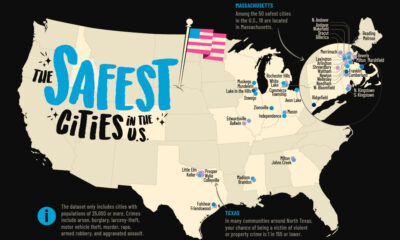
 Maps7 days ago
Maps7 days agoMapped: The Safest Cities in the U.S.
-
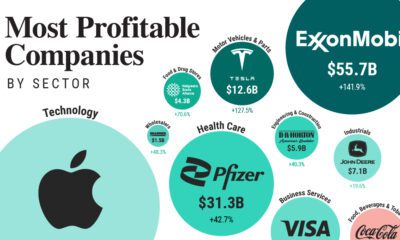
 Markets2 weeks ago
Markets2 weeks agoRanked: The Most Profitable U.S. Companies, by Sector
-
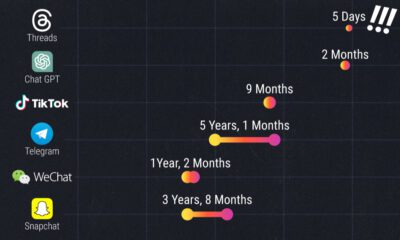
 Technology5 days ago
Technology5 days agoHow Long it Took for Popular Apps to Reach 100 Million Users
-
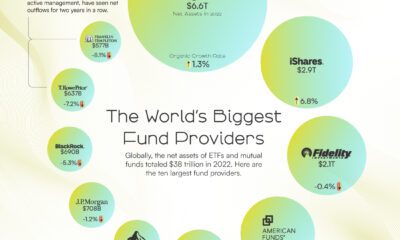
 Markets4 weeks ago
Markets4 weeks agoThe World’s Biggest Mutual Fund and ETF Providers
-

 Brands2 weeks ago
Brands2 weeks agoBrand Reputations: Ranking the Best and Worst in 2023
-
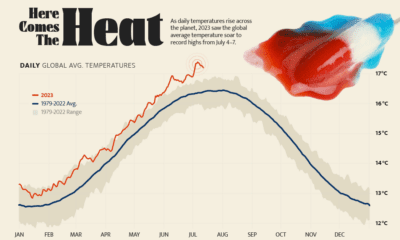
 Environment5 days ago
Environment5 days agoHotter Than Ever: 2023 Sets New Global Temperature Records
-

 Datastream4 weeks ago
Datastream4 weeks agoCan You Calculate Your Daily Carbon Footprint?

